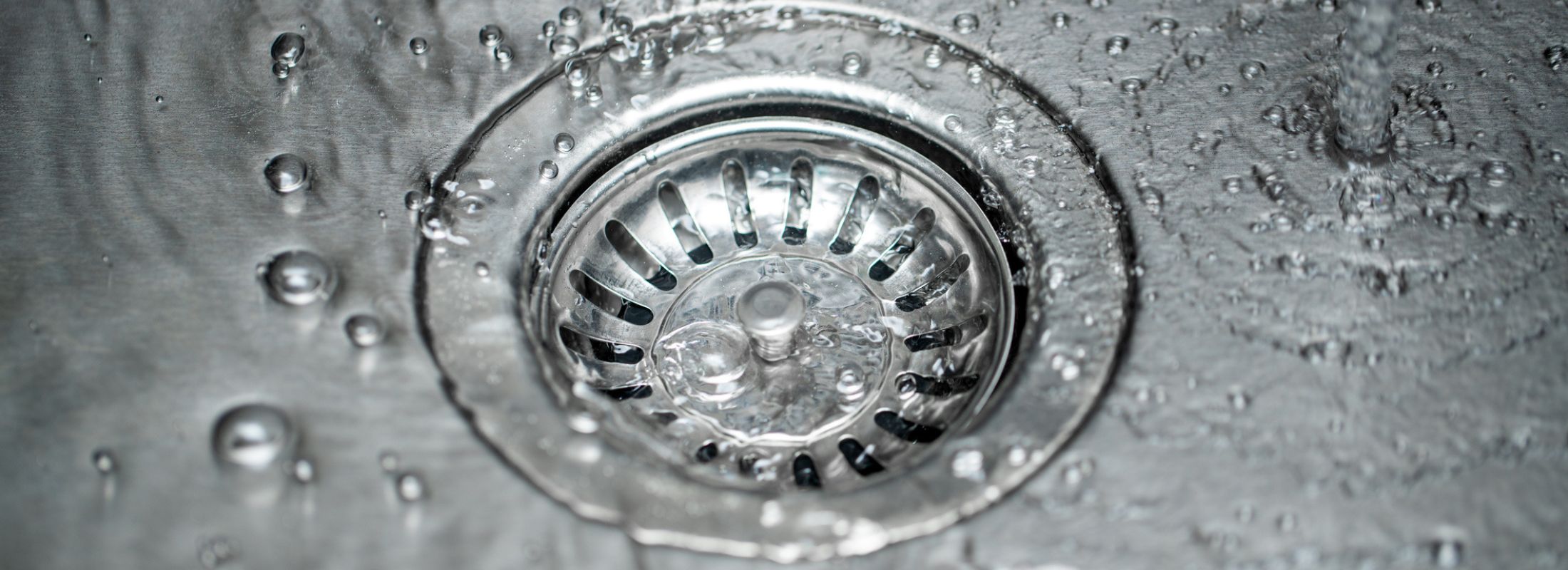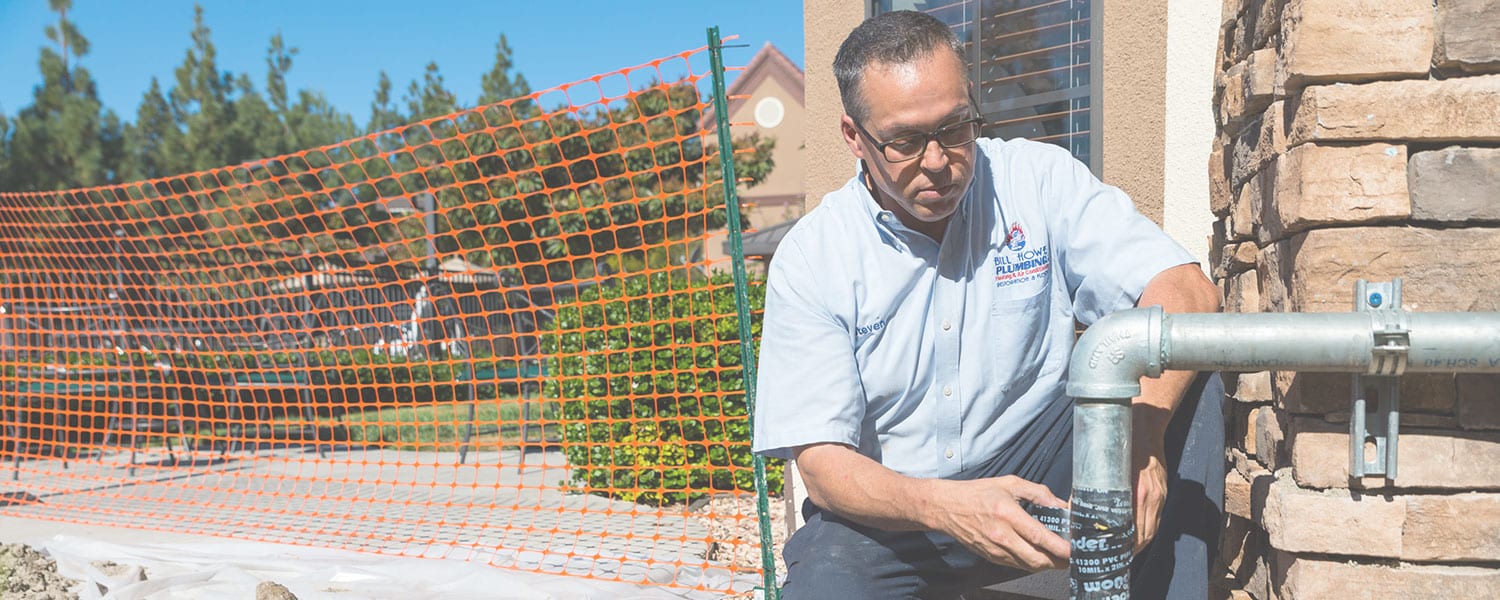At Bill Howe, our plumbers in San Diego are often asked if all businesses and homes need an earthquake shutoff valve. The simple answer is yes. After all, our region reports about 35 earthquakes a day. While San Diego County reports fewer earthquakes than other parts of Southern California, activity has doubled in our county since 1984. Even minor earthquake activity could potentially cause damage to gas lines and create an undeniable risk of explosions and fires. An earthquake gas shut-off valve can help prevent a gas line disaster caused by an earthquake event.
Our skilled plumbers in San Diego know that a shutoff valve offers critical protection for
your home, loved ones, or business. Even if the earthquake were minor, it’s always best to be on the safe side and have the proper safety features installed.
There are mandates to install a government-recommended, automatic seismic gas shut-off valve. It’s a vital safety measure in our region and a must-have part of any earthquake preparedness plan.
So, the next time you call for a Bill Howe plumber in San Diego, ask us about earthquake shut-off valves. We care about all our customers and take earthquake safety seriously. Our friendly staff will gladly direct you in the right direction with one of our plumbing experts to come out to your property for a free estimate.
Benefits of Installing an Earthquake Shut-Off Valve
An earthquake gas shutoff valve is automated by seismic tremors, and once triggered, it can cut off the gas flow. These devices work before homeowners even have time to react to the terror of an earthquake. And, since the shutoff effects are immediate, there is far less danger that the gas could continue to flow and reach damaged lines, which could be dangerous. In a worst-case scenario, it could set off an explosion.
Our plumbers in San Diego know that second’s count in an earthquake. Fortunately, innovative solutions, such as an automatic seismic shut-off valve, can come to the rescue and provide the protection your property needs during seismic events.
The following are some of the critical benefits of an earthquake shut-off valve:
- Reduce the Risk of Fire
An automatic seismic gas shut-off valve will instantly shut off the gas supply during a seismic event. This can prevent gas leaks caused by broken gas lines, which may ignite and cause fire during an earthquake.
- Minimize Gas-related Damage to Your Property
Gas-related damage, such as fires, can destroy your property. Earthquake shut-off valves prevent uncontrolled gas flow from the gas lines.
- Keep Compliance With Local Building Codes
Commercial property owners with their buildings connected to gas lines must always be up to code. You will need an automatic seismic shut-off valve installed if there is not one already installed.
- Can Provide Peace of Mind
An earthquake can be scary enough for some family members to endure. An earthquake gas shut-off valve is a great way to protect your home from gas-related hazards during an earthquake.
- Safety measures
Installing an automatic seismic shut-off valve is a proactive safety measure against potential gas-related issues when an earthquake strikes.
Do I Need an Earthquake Shut-Off Valve?
In California, most buildings connected to gas require earthquake shut-off valves. All buildings constructed since 2000 are required to have an earthquake shut-off valve. In fact, a building permit will not be issued by law enforcement until the valves are installed. While existing buildings built before this time and older homes are not required to have earthquake gas shut-off valves, they are highly recommended. However, if you plan to sell your home or commercial building, they must have an earthquake gas shut-off valve installed.
If you do not have one of these valves installed in your home or commercial building, contact the professionals from Bill Howe. Our licensed plumbers can properly install one that complies with local building codes. Our certified technicians know that your automatic seismic shut-off valve needs to be installed on your house line, not on the line of your local utility company. Note: Your local gas company must authorize the valve installation; if an unauthorized valve is installed on your local gas provider’s line, it will be removed.
There are two main types of earthquake gas shut-off valves. Both types are designed to protect homes and lives after an earthquake. The two types are:
- Automatic seismic gas shut-off valves: These valves become triggered when an earthquake with a magnitude of 5.1 or higher is detected.
- Excess-flow valves (EFV): These types of valves are triggered during a gas leak or overpressure surge in the gas line, which can happen when a pipeline is damaged after an earthquake. An EFV valve is typically installed underground on the service pipeline.
Once installed, we recommend regular maintenance to ensure the earthquake shut-off valve is working efficiently.
Protecting Your Property from Fire Hazards
Major earthquakes can cause severe property damage. Besides toppling buildings and tearing up roadways, they can also rupture gas lines. They can pull gas lines from connection points and unanchor appliances like water heaters. It’s serious. About one in four fires after an earthquake are caused by gas leaks caused by ruptured or broken gas lines. However, with an earthquake gas shut-off valve installed, you can focus on keeping your loved ones calm rather than worrying about a fire starting due to a ruptured gas line.
Where is the Seismic Shut-Off Valve Located?
An automatic seismic gas shut-off valve is located on the gas meter outside a home or building. However, the valve must be installed on the homeowner’s or building owner’s side of the gas meter. It also needs to be downstream of the meter. In a home, you’ll typically see the valve attached to a pipe that leads from the gas meter into a home. The valve should never be installed on your gas service provider’s equipment or pipe fittings.
Bill Howe’s certified plumbers have years of experience and know exactly where to install an earthquake gas shut-off valve.
Are Earthquake Valves Required in California?
Most buildings and homes in California require earthquake gas shut-off valves. Living near the San Andreas Fault System makes our region prone to earthquakes, so having the proper protective measures in place makes sense. Newly constructed homes and buildings will already have these potentially life-saving valves installed. While it’s not illegal for pre-2000 homes and buildings to have them installed, we live and work in a seismic activity hotspot, so it’s a good idea to have one installed.
An automatic seismic shut-off valve provides many benefits during and after a significant earthquake. However, they can also provide benefits even when there isn’t significant seismic activity. Some insurance companies may require an earthquake valve to be installed as a condition for earthquake insurance. Some may even offer earthquake insurance premium discounts to homeowners who have an earthquake gas shut-off valve installed.
Bill Howe maintains a large staff of certified technicians and plumbers in San Diego who are specialty trained to install earthquake shut-off valves and EFV valves. You can be sure that our plumbers are certified to fit the valve according to plumbing code. Once we finish, you will know that your home or business is protected. As a major service and repair company, we are proud to be able to offer these protective valves to homeowners and business managers.
We also offer installation of the water heater restraint system (aka earthquake straps) to make them less likely to topple during an earthquake. Earthquake straps are also required by law, and our technician can inspect the existing straps to ensure they comply with the plumbing code as well.
Get an Earthquake Shut-Off Valve Installed Today!
Unfortunately, gas lines can rupture for reasons other than a major earthquake. Corroded pipes, cracked pipes, improper installation, and faulty appliances can cause gas line leaks. In the event of a gas line leak, call Bill Howe for immediate gas leak repair service.
To schedule an appointment or receive an estimate with an expert plumber in San Diego, please contact us at 1-800-BILL-HOWE (1-800-245-5469). Whether you need a plumbing estimate or more information regarding earthquake safety measures, we can help protect your property!




